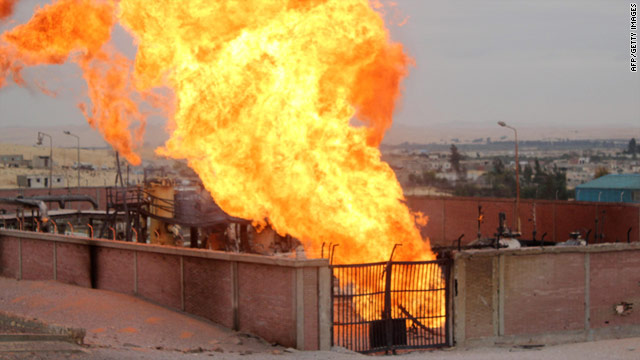Who would have thought Egypt would win the Africa Cup of Nations? That s one of the things we learned from the tournament: keep the faith.Altogether, we were given 10 worthwhile lessons in Ghana 2008. 1. You can win inside enemy territory. Egypt s 2006 victory was largely attributed to the advantage of playing on home soil. This time they did outside the confines of home sweet home, becoming only the second North African country to win the cup when the site was mighty West Africa. 2. Homegrown coaches can t be beat. Eleven of the 16 coaches who began the Nations Cup were European but at the end of the day the winning coach did not have eyes of blue. In the last four, Gerard Gilles, Otto Pfister, Claude Leroy were all outfoxed by Made in Egypt man Hassan Shehata who has now won two consecutive tournaments, following in the footsteps of Charles Gyamfi,, a son of his country Ghana. 3. And neither can homegrown talent: Egyptians proved you don t need to play in Europe to be a top quality footballer on a world class team. Hosni Abd Rabou, voted MVP of the tournament, plies his trade in Ismaili. Seven of the Egyptians voted on the Africa All-Star team have never gone to Europe except as tourists. 4. Being host guarantees nothing. Ghana s exit in the semi-final increased the number of times the host could not go all the way. Hosts have now lost 15 times while winning 11, an under-par 42 percent winning record. Pressure explains it. Playing in front of tens of thousands of home fans can be exhilarating but can turn ugly when the expected results are not forthcoming. The media pressure leading up to the tournament and in between matches is enormous, distractive and at times detrimental. And of course, sometimes the host country is not good at football 5. Long-range shooting can be beautiful but deadly. This championship will be remembered for many surface-to-air missiles, projectiles which were often used when coming up against defenses too sturdy. To cite just a few rockets and their launchers: Angola s Manucho against Egypt, Mohamed Zidan of Egypt against Cameroon, Bakary Kone of Ivory Coast against Guinea, Sulley Muntari of Ghana against Guinea, Chaouki Ben Saada and Yassine Chikhaoui of Tunisia against Cameroon, Tunisia s Mejdi Traoui against Senegal, Abdel-Kader Sayed of Ivory Coast against Egypt. 6. The sum is greater than the parts. A togetherness emerged on the Egyptian team which was never matched by any competing nation. While most other teams favored raw physical power, Egypt stroked the ball in midfield and patiently tried to work an opening, at one stage against Ivory Coast stringing almost 40 passes together. Egypt was always looking to open up defenses and use cleverly weighted passes rather than simply hoofing upfield for the forwards to chase, bypassing the midfield entirely. All this needed teamwork and it helped that most of the players know each other inside out because most are based in the domestic league. 7. You can win without key players. Mohamed Barakat and Mido were both ruled out of the tournament because of injury. Midfielder Hossam Ghali decided not to travel to Ghana in order to complete the transfer to English Premier League side Derby County. Rising star in the Egyptian game and 2006 medal winner, left back Mohamed Abdel-Wahab, died of a heart defect during a training session in August 2006. The loss of such big names would have troubled the best teams in the world but Egypt showed it had a large pool of talent to call on. 8. The cup can t buy you a World Cup ticket: Some countries, like Egypt, are good at winning the African title and some, unlike Egypt, are good at qualifying for the World Cup (Cameroon and Nigeria are good at both). This is Egypt s record sixth African title but some people would gladly trade them all for one World Cup appearance. Egypt s last World Cup was Italy 1990 ? it will be 20 years if we reach South Africa 2010 — and you would have to go back more than 50 years earlier for its first participation. 9. Money doesn t always talk but at other times it does. Although between them, Samuel Eto o, Didier Drogba and Michael Essien have enough money to buy the Pyramids, they did not play as good, and did not emerge champions, as our boys who make far less. On the other hand, they did not play as good as when we see them in Europe, leading to suspicions they reserve their best for club riches. 10. Never believe what you hear, see or read. Few people, including those who think they know everything about football, gave Egypt much of a chance, despite being the defending champions. Egypt squeezed into Ghana on the last day in the last game of the qualifiers which included some real minnows. Three pre-tournament tune-up games were commendable but nothing out of the ordinary. As such, the cameras instead zoomed in on Ghana, Ivory Coast, Cameroon and Nigeria. The inattention had the double affect of relieving somewhat the pressure on Egypt to do well but still galled them enough to serve as the instigator for victory. END

